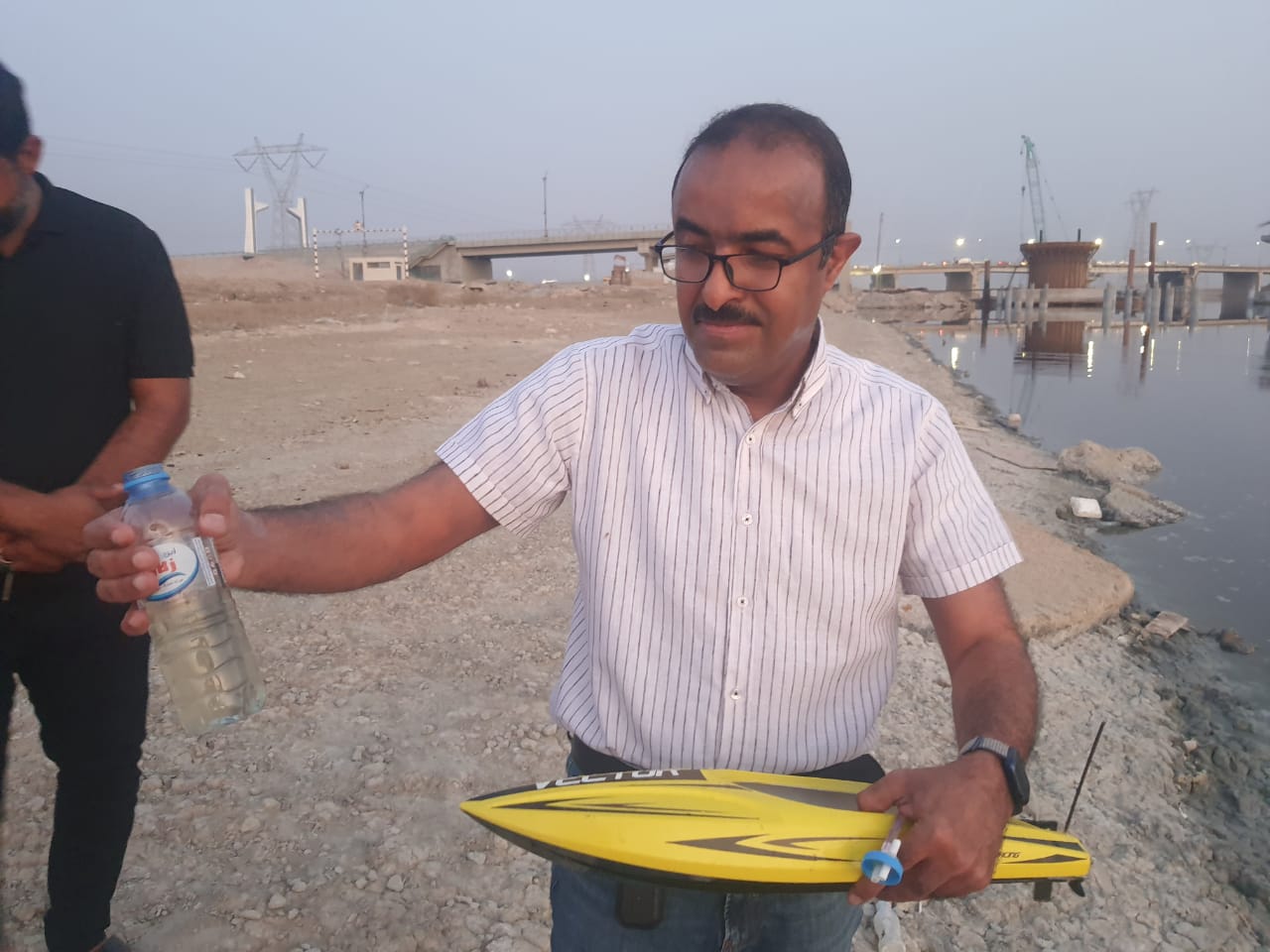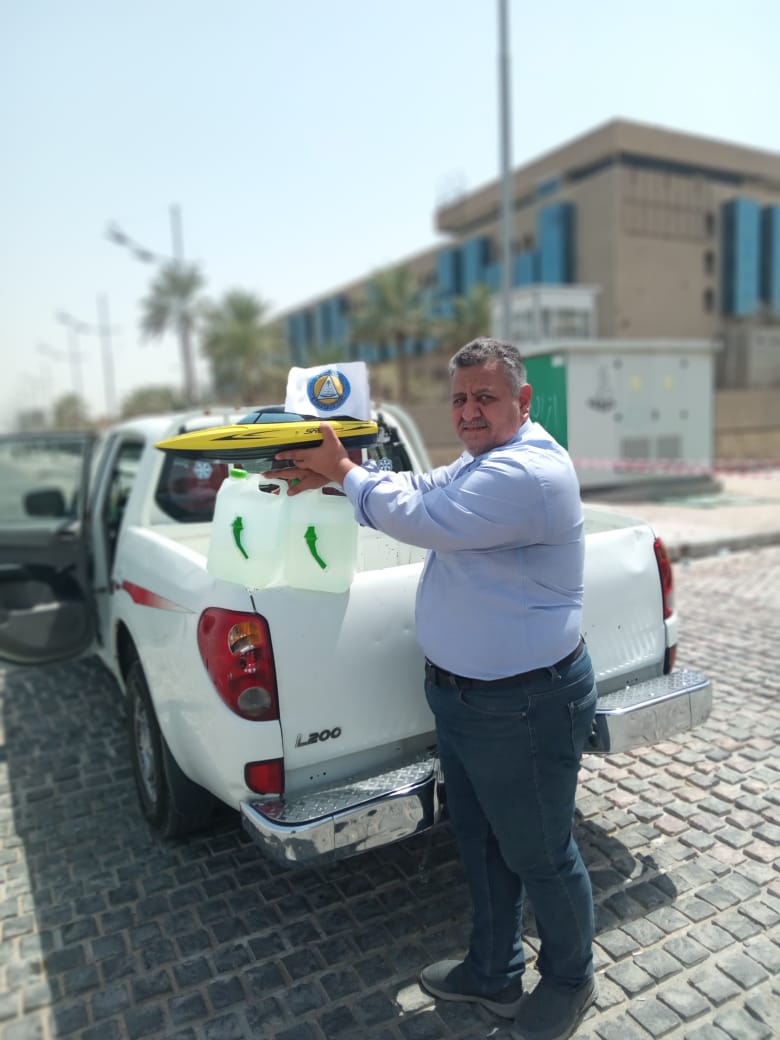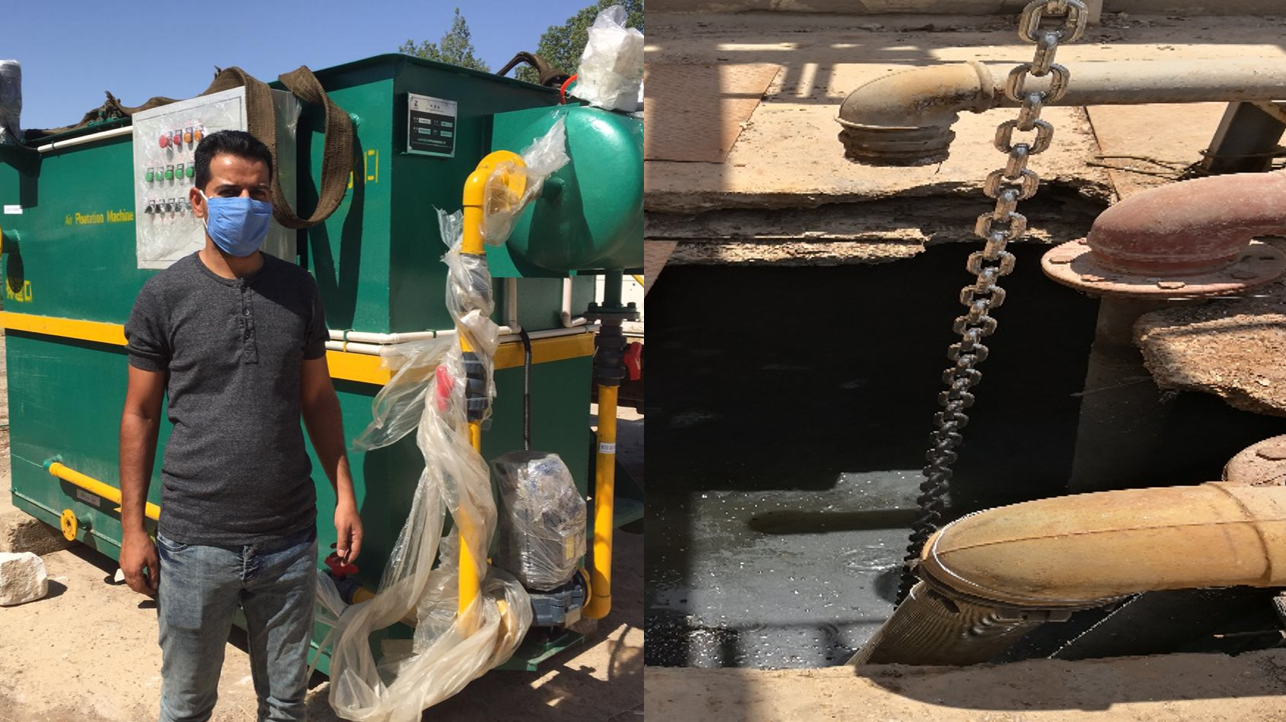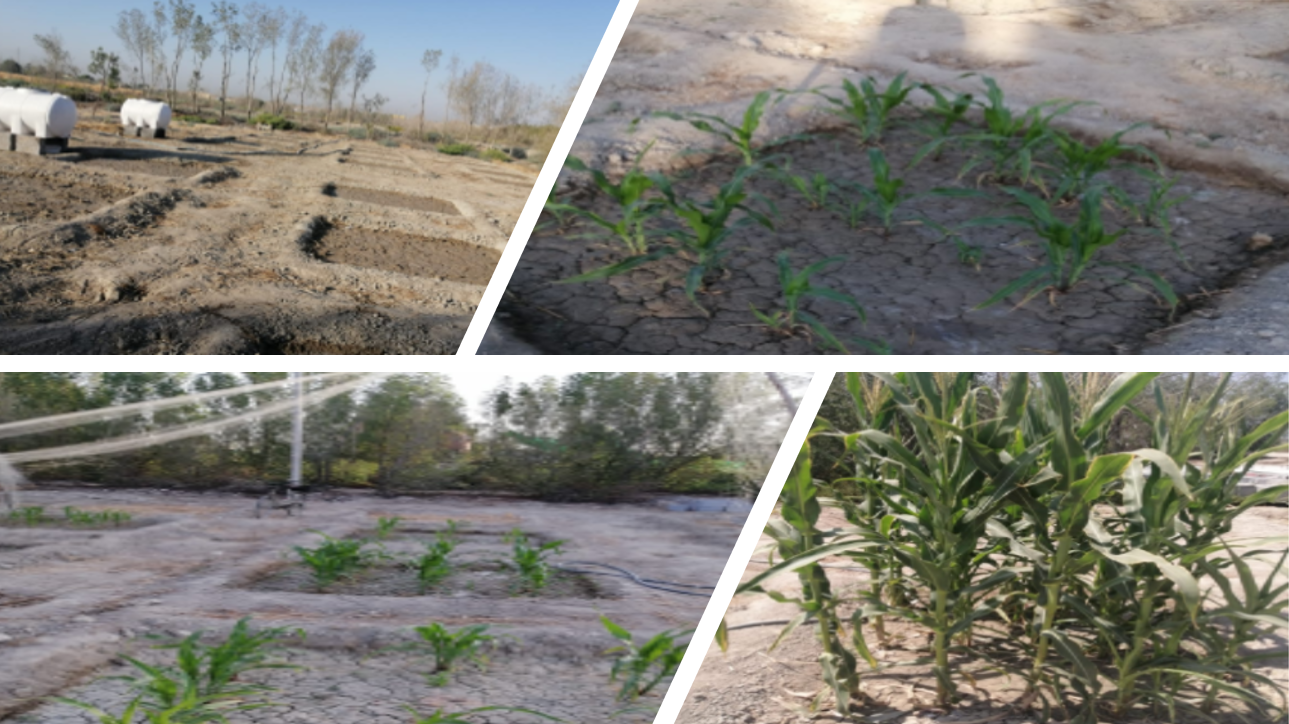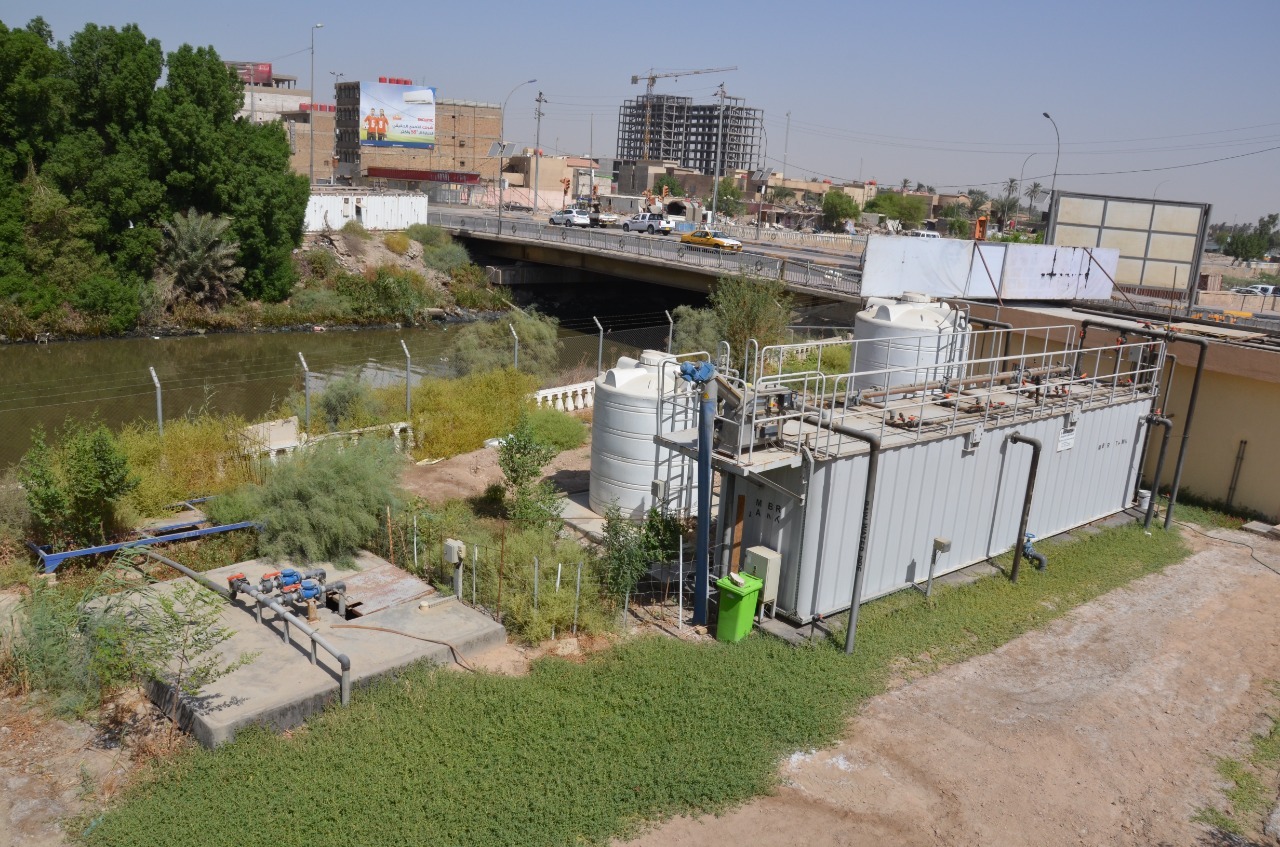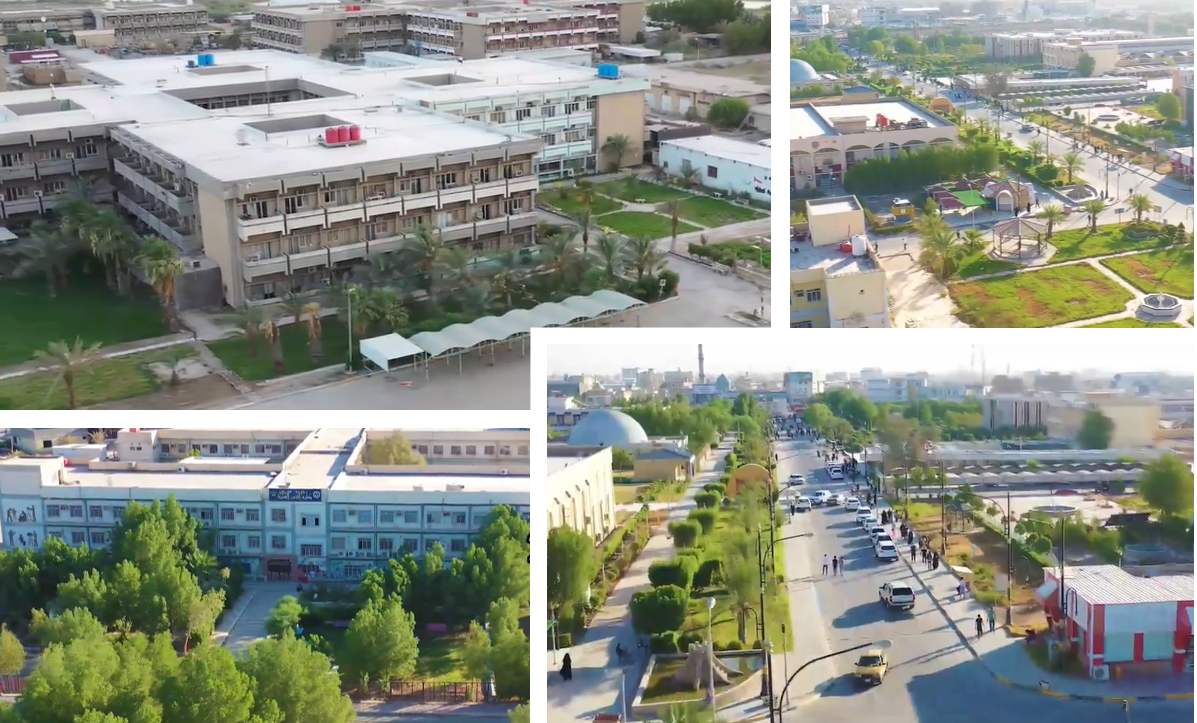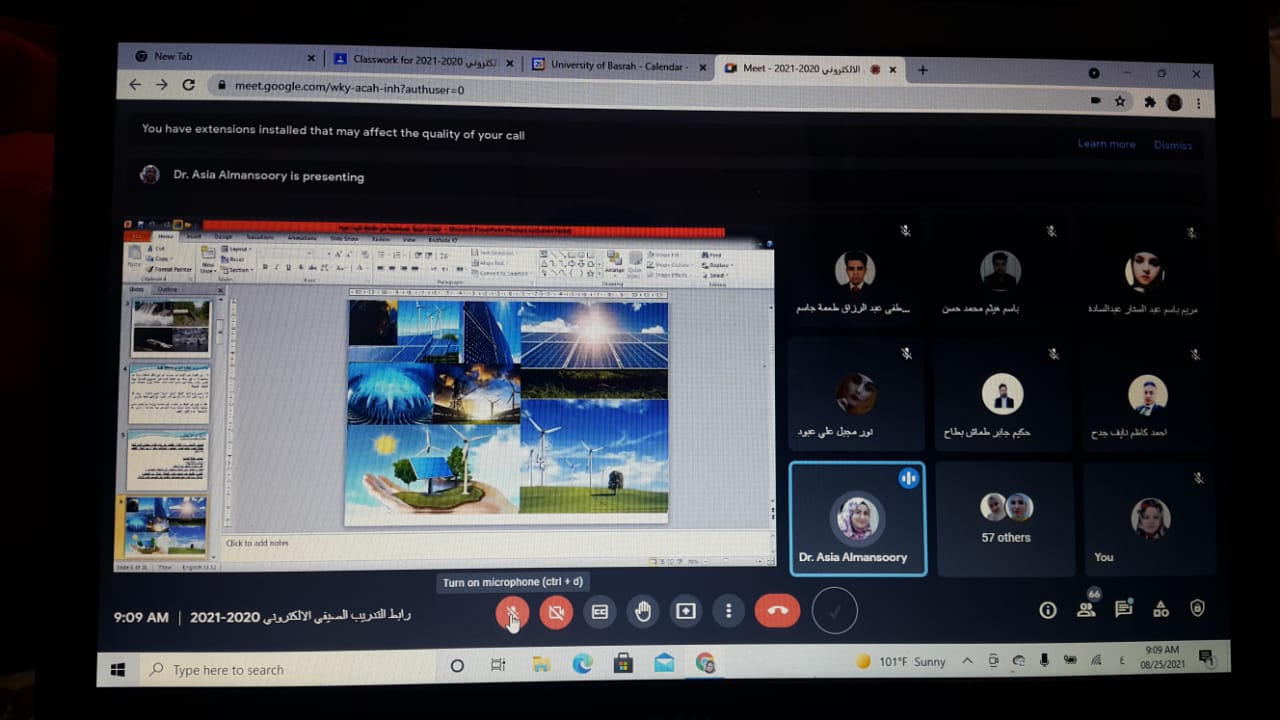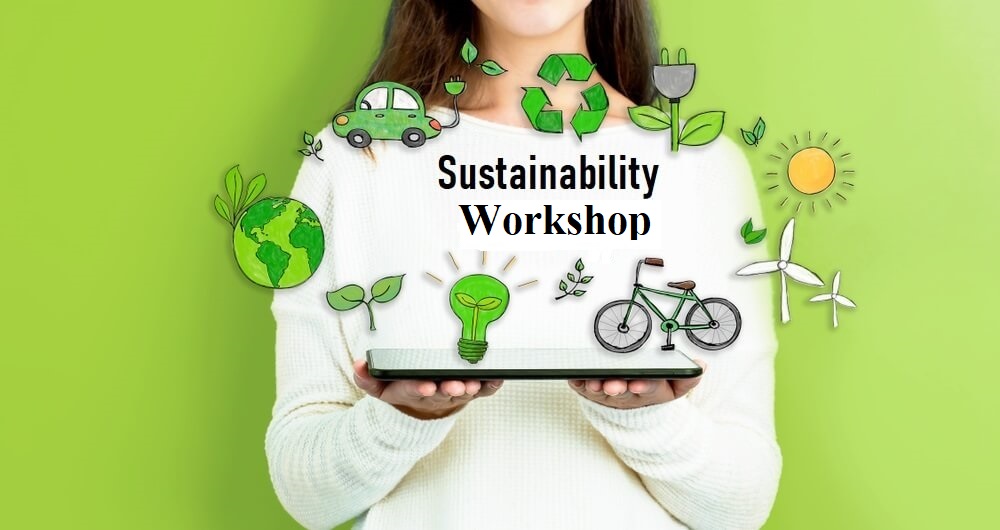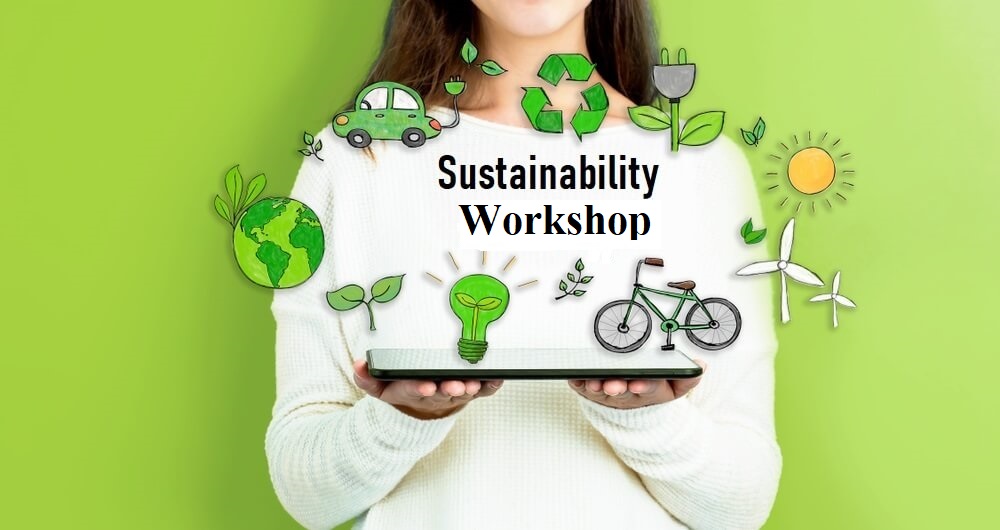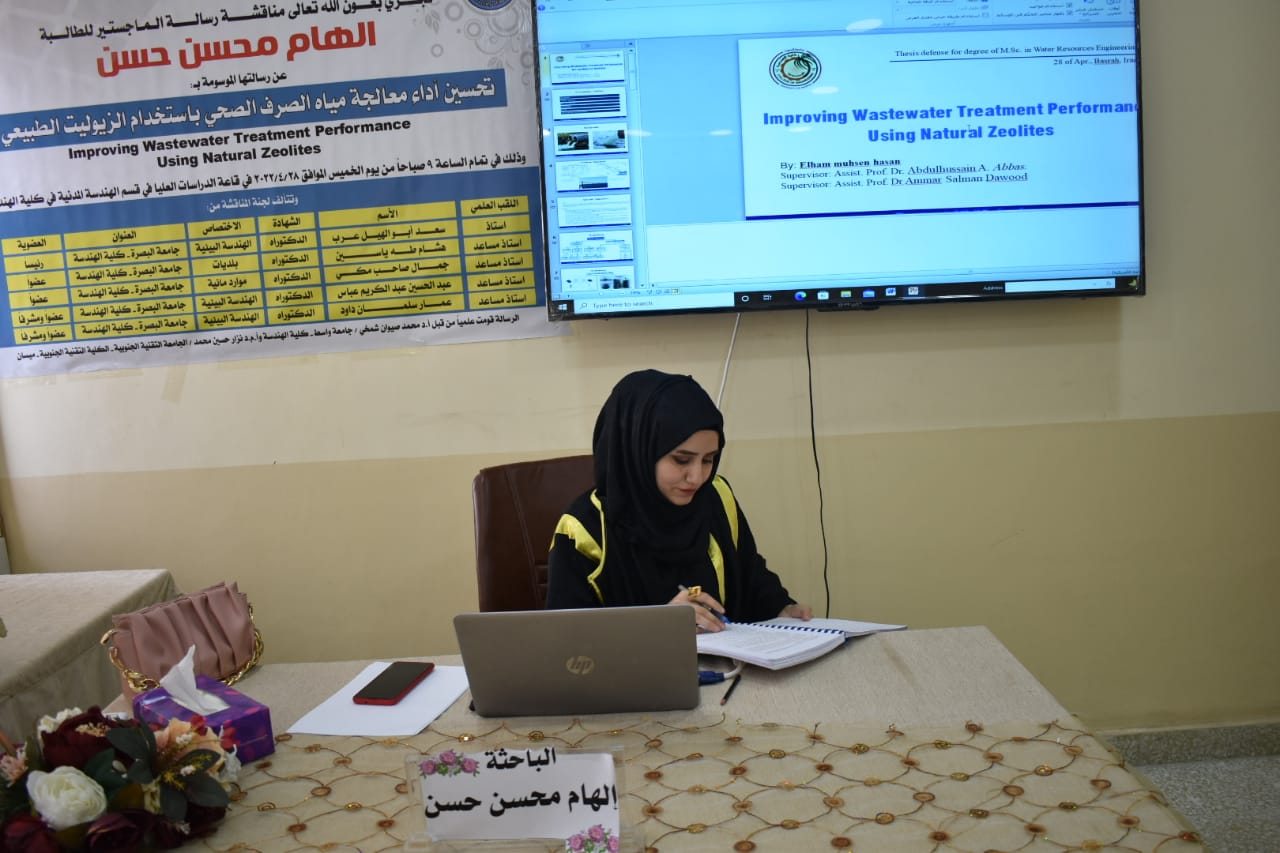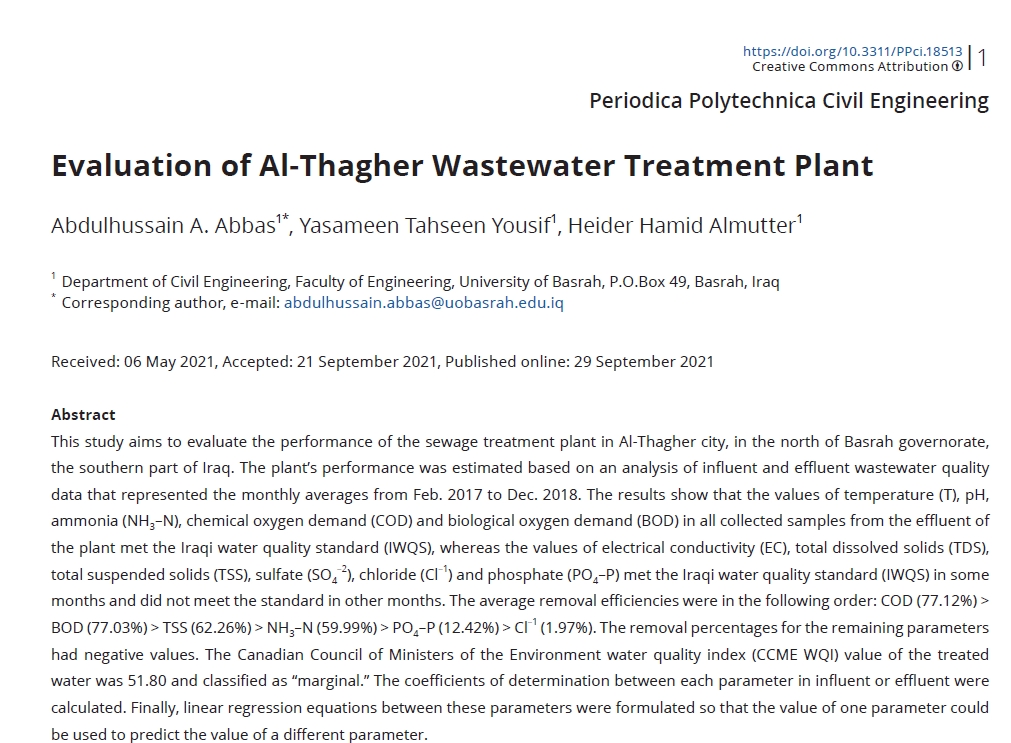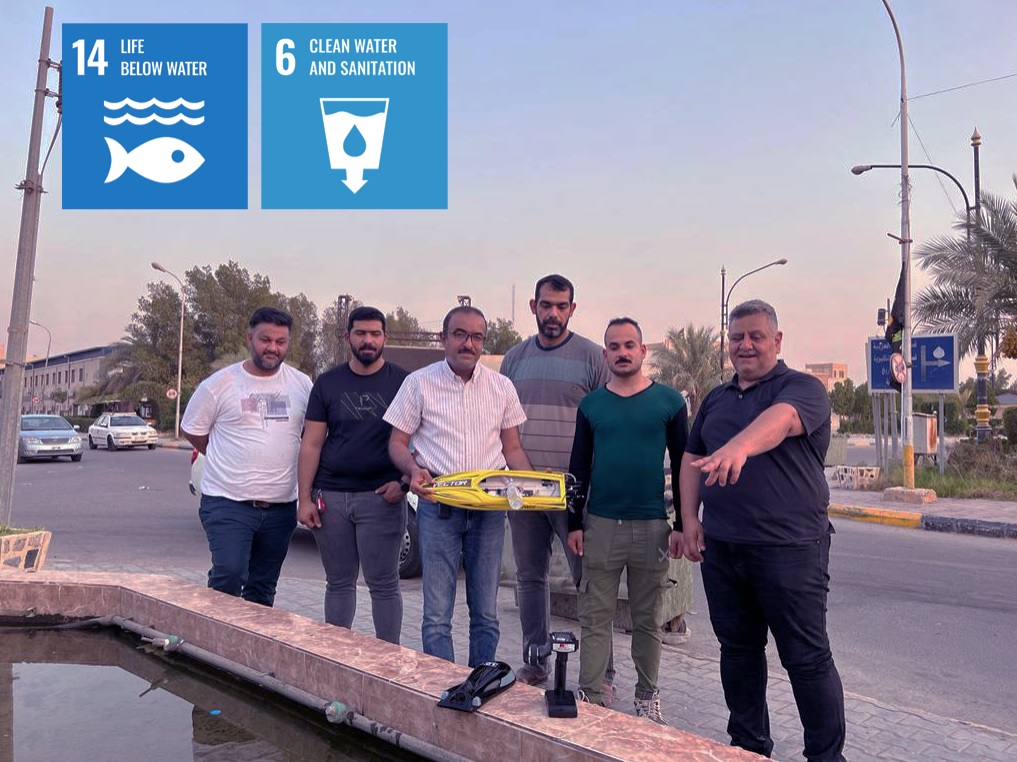![]()
Ensure Availability & Sustainable Management of Water & Sanitation for All
(Activities of 2022)
A process in Place to Treat Wastewater
Basrah governorate is undergone a sewage network, thereby all sewage water is purified by removing the suspended solids and converted to effluent before being discharged back to the environment outside the governorate. Since the University of Basrah is an educational institution that is concerned with scientific research and maintaining a sustainable living, the University of Basrah has paid attention to sewage disposal, especially since the governorate faces a serious problem on such matters due to the high salinity in the Shatt al-Arab and the water pollution.
Due to exposure of surface water of Shatt Al-Arab and its tributaries to pollutants from sewage and industrial water from power plants, containing hydrocarbons, salts, and heavy metals, this study adopted dissolved air flotation (DAF) with primary processing units with natural and mineral materials available locally and cheaply to dispose of these pollutants before they are thrown into the rivers and reused for irrigation purposes within international standards.
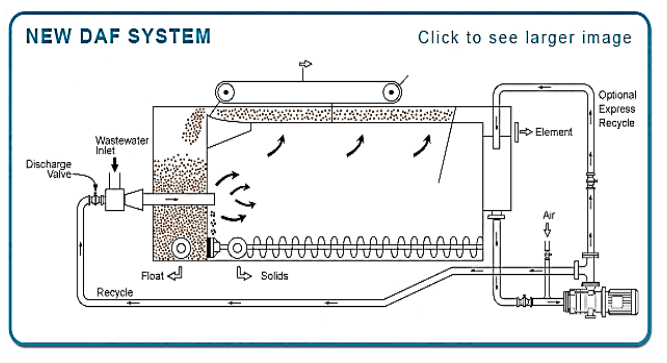
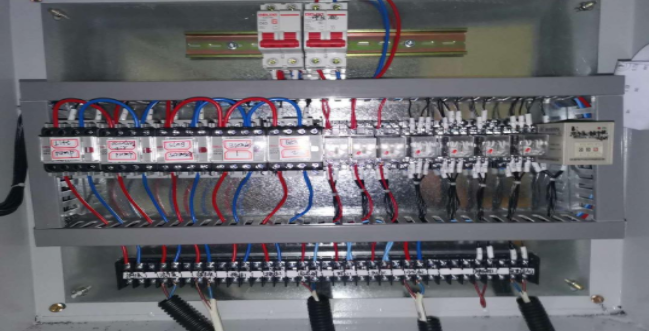
The Usage of Recycled Water
The treated water is then utilized to water the green spaces on each campus
Non-Recycling Water
The wastewater that is resulted from laboratories and clinics is treated before being discharged into the sewage network near the university campus.
Isolating the Rainwater.
The University buildings were designed to meet the standards required for reused water and isolate the rainwater. The buildings have an isolated washing water network, a sewage network, and the network of rainwater drainage from all the rooftops. The rainwater is isolated and transferred to feed the greenhouse, poultry and sheep fields, and fish breeding fields at the college of agriculture.
Treat Water & Soil Pollution
The Department of Ecology at the College of Science organized an online scientific lecture within the summer training courses on environmental technologies used to treat water and soil pollution.
Workshop
University of Basrah organized a scientific workshop on sanitation projects.
Workshop
Thesis
A master's thesis at the University of Basrah discusses (Achieving combined treatment of wastewater using zeolite and a chain flow reactor).
Research
Thesis
The College of Science is discussing a master's thesis on Evaluating and Improving Shatt Al-Arab River.
University of Basrah Group Operates Water Sampling Boats
It is well-konwn that the Basrah province is surrounded by many rivers , along with arabian gulf, such as Tigris, Euphrates, Basrah , Shat al arab, Karma, Zubair and so on. The University of Basrah has founded a group of professional inventors who manufactures remote-control-based boats for collecting samples of water to contribute for maintaining the abovementioned rivers. The ability of the boats to collect samples was tested at the Basrah province rivers and the boats show extensive efficiency in collecting the desired samples from different spots on the river. The samples were provided to specialized laboratories at the marine science center, which belongs to our university, for further experiments and analysis.
In the past, experts of the University of Basrah used to drive real boats, which our university owns, to go to faraway areas in order to collect samples. Now, it is possible to save effort and energy by using these boats that are controlled by electromagnetic remote control waves to collect those samples effectively and quickly.
